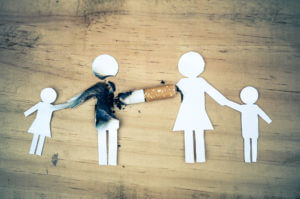Loving an addict often sounds like this:
“If you truly loved me, you’d quit!”
“If you don’t stop, I’m done.”
“When you use — after promising me you wouldn’t — and I find out, it’s like you’ve cheated on me.”
Looking deeper, loving an addict feels like:
“I’m alone in this relationship. I don’t know whether you will be there for me.”
“I want to support your recovery, but I’m not sure how.”
“It’s hard to trust you because, when you relapse, you’ve hidden it from me.”
“The addiction comes between us. I want to feel close to you again.”
What we know from working with couples and from the research is that when one or both partners struggles with addiction or substance abuse, a “wall” is created between them that can lead to great damage to the loving bond and connection.
So, it’s not unusual for the couple to find themselves in crisis.
However, there’s also hope. First, we’ll explore how loving an addict impacts both partners in the marriage or relationship. Then, we’ll help you understand the role of treatment for substance abuse and how partners can support recovery.
Addiction Leads to a “Negative Cycle” for Couples
We define arguing and distancing between couples as a “negative cycle.” Repeated arguments lead to heightened emotions — including anger, frustration, withdrawal — but rarely to resolution. Unfortunately, couples come to see each other as the enemy — rather than this negative cycle. It’s the cycle of hurtful arguing and the growing distance between you that is your true enemy.
When we fall in love, we establish a powerful bond with our partner. We are drawn to our partner as a source of our well-being and security. When a partner is using a substance, they are not “themselves” as we have come to love them. He or she can feel distant, unpredictable perhaps and less available emotionally. That all-important bond feels less and less secure.
It’s that fraying of the bond that can contribute to the developing negative cycle.
And, the negative cycle has consequences.
For the partner with the addiction or substance abuse, the stress of the now-difficult relationship can contribute to an increase in turning to the substance for relief, for soothing the emotional turmoil. It’s often become nearly impossible to calmly discuss true concerns with his or her partner because the negative cycle has taken over.
The other partner feels an emotional distance, making it challenging to offer support. If his or her partner’s behavior changes when they are using, the non-using partner is intensely impacted. Trust begins to erode, as often the addict hides his or her usage from the partner because of the likely onslaught of the negative cycle.
Feeling hopeless and useless to help the partner, the non-using partner feels lost on how to offer help.
The negative cycle erodes the ability of the couple to address the issue. Yet, hope lies in the couple being able to unite over this enemy that is slowly destroying their relationship or marriage.
Understanding Addiction: Some Basic Science
Addiction (and alcohol abuse) have been defined as a “state of being enslaved to a habit or practice or to something that is psychologically or physically habit-forming.” The addicting substance (illegal or prescription drugs, alcohol, food) or compulsive activity (video games, technology) find a pathway to the reward system in our brain. The reward can be pleasure and a relief from stress. (Side note on Sex and Porn Addiction: A Peaceful Life Counseling subscribes to the viewpoint held by the American Association of Sexuality Educators, Counselors, and Therapists that does not support classifying sexually compulsive behavior as an addiction. Read their position on Sex Addiction here.)
What may begin as a voluntary habit, such as social drinking, can evolve into compulsive seeking and use. And, then abuse. Our brain keeps asking for more — and has its own type of rebellion in the form of cravings and obsessive thoughts — when we try to discontinue the substance.
Unfortunately, substance abuse and addiction are accompanied by a social stigma that causes many people to hide or deny their disease and not seek treatment.
The good news is that addiction science continues to advance. There are medical doctors, known as addictionologists, who specialize in treating addictions and can prescribe helpful medications. An array of inpatient and outpatient treatment programs, as well as recovery groups — are available.
It’s important to know, however, that suddenly stopping certain drugs (including abusive use of some prescription drugs) and alcohol can be life-threatening and should be done in a detox facility or under a physician’s care.
Emotionally Focused Couples Therapy Unites You Both Against Your Relationship’s Enemy
In Emotionally Focused Couple Therapy, we identify the negative cycle as the enemy — not either of you. Couples can learn to stand together to defeat the negative cycle.
So, too, can couples learn to stand together against the enemy of addiction. Understanding that addiction is a disease of the brain helps rename the stigma and view addiction as the medical problem that it is. Treatment has both physical and behavioral approaches.
One of the strengths of Emotionally Focused Couples Therapy is that it is a very in-depth, yet gentle approach to helping each partner really see and understand what is happening in the other partner’s experience. Not all couples with substance abuse issues are ready for couples work, but couples work can help you to communicate with your partner who is struggling with substance use so they can better hear your longing for a healed connection in a different way. We can help you move away from battling your partner or giving in, and help both of you carve a pathway to greater understanding and forward movement. Your partner needs to be able to see the impact of their addiction on the relationship without getting stuck in feeling criticized, shamed, or controlled. EFT Therapists can help facilitate those needed conversations so that you move from battling each other to battling the addiction together.
If treatment specific to substance abuse is needed, your therapist will discuss what this means and whether your unique situation lends itself toward being able to do couples work and substance abuse work simultaneously, or whether your partner needs to make some progress on the addiction first in order for the therapy to be effective. While no blog post can accurately predict your needs, we can say that we work to help you craft a treatment approach that feels right. Working closely with a person’s individual substance abuse counselor to ensure that both treatments have the best chance of success is one example of how having a couples’ therapist during this process can be valuable. Loving and addict doesn’t have to be a hopeless situation.
Loving an Addict: How Can I Help?
The person loving an addict is often mystified as to how to help. Indeed, there already has probably been quite a bit of arguing between you as well as repeatedly asking the addict to get help. What’s difficult for partners and spouses is to learn what is helpful and what is not.
Partners can support the recovery process, but the actual work itself must be done, of course, by the person with the addiction or substance abuse problem.
There are several resources for partners:
- Al-Anon is a 12-step program for family members of addicts and alcoholics, and there is also a program for teenage children. In a supportive environment, you learn how to support and not enable recovery.
- Treatment programs often include spouses and partners in portions of the treatment process, allowing partners to gain a greater understanding of addiction and how to be supportive.
- Couples counseling in Emotionally Focused Couple Therapy helps the couple heal from the challenges that occurred during the course of the addiction.
If you’d like to speak with one of our therapists about your situation and whether couples counseling could be a first step for healing your relationship, book a complimentary in-person consultation here.





